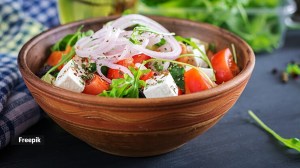Docs put grapes at the heart of matter
A glass of grape juice a day can keep your doctor away if a recent research headed by an Indian-born scientist in Connecticut is to be belie...

A glass of grape juice a day can keep your doctor away if a recent research headed by an Indian-born scientist in Connecticut is to be believed.
Dr Dipak Das, Director of the Cardiovascular Research Centre at the University of Connecticut School of Medicine, Farmington, says while we are well aware of the ‘‘heart protective benefits’’ of red wine, grapes when eaten raw can provide the same benefits.
The doctor says the therapeutic qualities are due to a component called resveratrol found in the skin of grapes — the percentage is higher in red and black grapes than green ones.
Dr Das and his team of 26 scientists took three years to come to this conclusion. Their study, published in the Journal of Cardiovascular Pharmacology last year, was endorsed by the American Heart Association.
‘‘I can safely say that having about eight to 10 grapes everyday can have heart protective effects. It is also true for some nuts and berries,’’ says Dr Das, who is here to attend an International Pharmacological Conference organised by the All India Institute of Medical Sciences (AIIMS).
The doctor says while their research focused on the cardiovascular benefits of resveratrol, the wonder component is also known to prevent prostrate pancreatic gastrica, thyroid cancer, tumour and ageing.
He says the curative value of grapes, which contain resveratrol, lies in its anti-oxidant properties. ‘‘We breathe oxygen which has to be reduced to water. The problem arises when the body is unable to convert all the oxygen into water and starts accumulating free radicals or free oxygen molecules, which causes various diseases. The anti-oxidants destroy the free radicals and boost the immune system,’’ he says.
‘‘We have found that the component (resveratrol) apart from decreasing free radicals, inhibits the bad cholesterol, helps in vascular relaxation and is also anti-hypertensive,’’ the doctor adds.
The 57-year-old scientist is now in the process of testing the efficacy of resveratrol as a medical component in controlling heart diseases. ‘‘The animal trials have been done and clinical trials will be carried out after all pre-clinical tests for dosage are completed,’’ he says. The research is being funded by the National Institute of Health of the US Government Research Organisation.
‘‘Resveratrol is toxic in higher doses, so it is absorbed very little by the body. If grapes have one per cent of it, only 0.1 per cent will be absorbed. But it works even in such small doses,’’ says Dr Das.
The scientist, who left the country 33 years ago, thinks India is a treasure trove for such research. ‘‘We have recently undertaken a research project of Tal Makhna, a species of lotus found in Bihar and Punjab. It has a Viagra-like component and has been found to be protective for the heart,’’ he says.
Photos



- 01
- 02
- 03
- 04
- 05




























